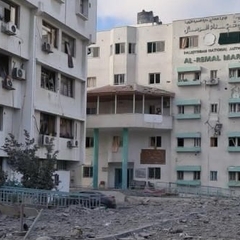
Facing My Guilt: I am surviving, but diabetics in Gaza are not
19 Aug 2024, 8 p.m. in Global Stories by Ali Hisham
Ten years ago, when I was first diagnosed with type one diabetes, I spent countless hours studying my newly diagnosed condition. I came across a research paper by Stanford University stating that people living with type 1 diabetes make around 180 more decisions per day than people without diabetes, with a rate of an extra decision every 5 minutes of waking time. I then realised that type 1 diabetes is a full-time job, without vacations or time off.
Years passed, and when I graduated, I needed to find a full-time job, like most independent adults. But, what about the full-time job of living with diabetes I have had since 2014? It is so tiring; I never take vacations, I complete a task every five minutes, and the Stanford University research confirmed it. Unfortunately, none of this provided me with the financial security I needed. Later, I found a paying job, so then I had two full-time jobs. I found myself struggling to handle both simultaneously. Life became so fast and never-ending, like being in a race, riding a kid's plastic car, racing against Ferraris.
A sense of connection grew inside me with all people with type 1 diabetes, everyone with the kids' plastic cars –let's call us that– in the race like me. I cheer up when I see someone injecting insulin or doing a finger prick in public. I built a community of dozens of people riding kids' plastic cars where we share advice, memes, recommendations, and support each other.
I used to feel guilty knowing that there are people who are less economically fortunate, who struggle to get their insulin, and who don't have continuous glucose monitors (CGMs) because they are incredibly expensive. I tried to alleviate this guilt through my advocacy work, asking for #insulin4all, raising donations, and advocating to decrease the price of insulin and diabetes supplies (which, for some people, exceed 80% of their income). Despite this, there was a group of people living with diabetes I couldn't support finding a solution for: diabetics in humanitarian crises, such as the catastrophe in Gaza, where people have been severely suffering for decades, even before the ongoing war.
Since the full Israeli blockade of Gaza's borders in October 2023, people with chronic illnesses, like diabetes, have been suffering immensely and are extremely marginalised. The already devastated healthcare infrastructure in Gaza has now virtually collapsed. The United Nations Relief and Works Agency for Palestine Refugees in the Near East (UNRWA) used to be the primary provider of healthcare for diabetics. However, out of a total of 26 centres, UNRWA has lost more than half of its healthcare centers, which went completely out of service.
The high volume of severely injured and life-threatening patients forces doctors to make critical decisions about which patients should be prioritised for immediate treatment in emergency rooms and which, regrettably, must be left untreated due to resource constraints. If a doctor chooses to help a patient with diabetes, they face a massive scarcity of the insulin needed for treatment. Moreover, even if insulin is available, its effectiveness is questionable if it hasn’t been refrigerated for ten months, given Gaza's lack of electricity. The announced statistics of war injuries and death tolls do not include those who die from chronic illnesses that have become untreatable because of the war and the Israeli blockade of basic human needs.
Numerous Palestinians with diabetes have stopped taking their insulin due to the scarcity of insulin, some of whom, like Rami Al Nagla, died because of the lack of insulin. Dr. Ahmed Yousef told Al-Jazeera that he witnessed a patient with type 1 diabetes in diabetic ketoacidosis (DKA)—a condition that should be very treatable under typical medical conditions—die in front of him because he didn't have insulin to administer. Patients like Shahad Abu Anza have called for help, reporting blood sugar levels rising, and experiencing severe pain.
This catastrophic situation means that individuals with diabetes in Gaza, who may not face immediate fatality, will soon experience the long-term consequences of inadequate diabetes management after the war ends. This chronic mismanagement will definitely lead to severe complications in the future.
It has been months since the war began in Gaza, with nearly 40,000 deaths and over 90,000 reported injuries. However, the fatalities from untreated chronic diseases remain unknown. People living with diabetes are pleading for their basic needs to survive; needs that now seem like luxuries: insulin, blood glucose test strips, food to treat their hypoglycemia, and suitable diabetes-friendly meals, rather than the sporadic cans of food, which are a rarity as many Gazans are facing starvation.
Every day, as I reach for my well-stocked medicine cabinet, my refrigerated insulin, and my CGM, I continue to live with diabetes, carrying not just the burden of managing my disease but also deep guilt and empathy for everyone who has been left behind. Do you remember the child’s plastic car that was racing Ferraris in our diabetes community? It is now racing military trucks and tanks. We must try to save it before it's crushed under the weight of war, and save the lives of people living with diabetes in war-torn Gaza.
Make insulin available in Gaza now. Join us in calling for an immediate ceasefire and a medical envoy to provide critical medical aid immediately.





